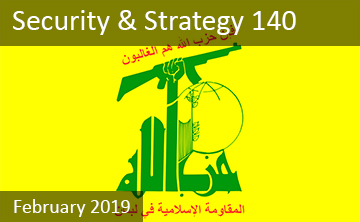
Crossed Views on Jihadism in the Middle East:
The Engagement of Lebanese Fighters in Syria
Elena AOUN & Didier LEROY
The “Arab Spring” in Syria has swiftly turned into a multilayered and total war involving global, regional and local actors, some in an official (inter-)governmental capacity but many in other capacities obeying to logics that challenge common understandings of border and identity. This report aims at studying one such instance: the involvement of Lebanese non-state actors in Syria. Considering the extent of their respective involvement in the Syrian conflict in spite of the Lebanese governmental “policy of dissociation”, two non-state actors have been studied: pro-Assad Hezbollah and informal Sunni movements that have embraced the fight against Damascus. Beyond the assessment of who these actors are and how they involve in the conflict, the research devotes special attention to what our fieldwork shows to be a key mobilizing factor: the mobilization of identities across borders.
Based on more than 50 semi-directive interviews conducted in Lebanon between December 2013 and September 2017 with a variety of actors and observers1, this joint research shows differentiated patterns of identity mobilization. On one side, Hezbollah’s operatives are bound to a powerful top-down organization with an agenda underpinned by geostrategic calculations and identity politics; for this group, asabiyya (“esprit de corps”) has proven to be paramount. On the other side, the involvement of Sunnis takes place on an individual basis within networks of jihadis built almost exclusively on the activation of religious identities and enmities; for these mostly atomized actors, social anomie (i.e. the loss of social bearings) has been found essential. Interestingly, the research has shown that both these obviously opposite social experiences (excess and lack of belonging) converge in making identity so prone to activation that individuals opt for a path leading to a likely if not a certain death in a cross-border conflict that is not theirs at first sight. Our research ambitions to understand these dynamics while relating them to broader factors, and notably to the failure of the Lebanese state and society to build a cohesive national project. Both these factors have led to excessive polarization and ensuing narratives of victimization, hence sustaining the cultivation of transnational primary identities at the expenses of national belonging.

